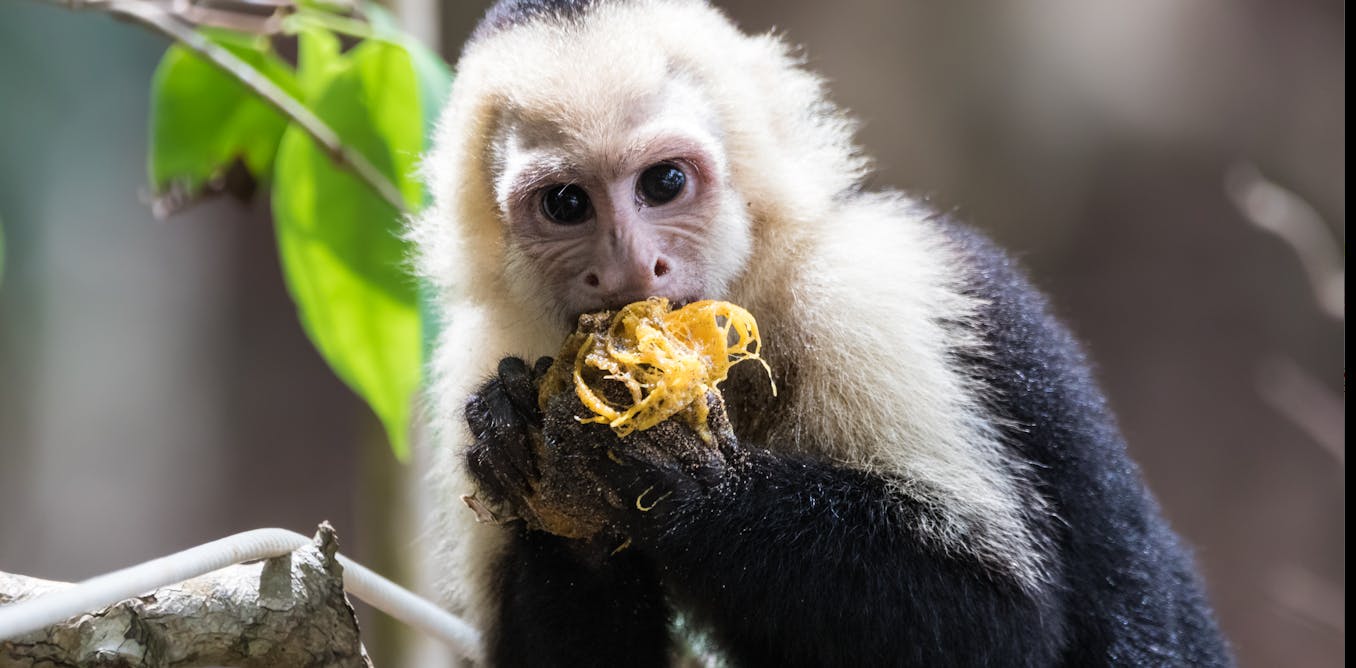Primate Brain Evolution: A New Study Reveals Surprising Findings
In a groundbreaking study published in Proceedings of the Royal Society B, researchers have challenged the leading hypothesis for how primates evolved large brains. Contrary to popular belief, the study suggests that the evolution of big brains in primates was not primarily driven by the need to find food more efficiently.
Tracking fruit eaters in Panama
The researchers conducted their study in Panama, where they observed fruit-eating mammals facing a unique challenge. Due to a natural phenomenon, the animals were forced to focus on a limited number of ripe fruit species over a three-month period. Using drones, the researchers mapped the island and identified patches of fruit trees to study the foraging behavior of different primate species.
Do smarter primates forage more efficiently?
The study focused on two large-brained primate species (spider monkeys and white-faced capuchins) and two smaller-brained raccoon relatives (white-nosed coatis and kinkajous). Surprisingly, the researchers found that the big-brained primates did not have more efficient foraging routes than the smaller-brained species, challenging the traditional fruit-diet hypothesis of brain evolution.
Why the big brains, then?
The study raises questions about the true drivers of brain evolution in primates. While the researchers did not find evidence to support the hypothesis that large brains improve foraging efficiency, they suggest that brain size may be linked to other factors such as memory, tool use, and social complexity. Further research is needed to explore these possibilities and unravel the mysteries of primate brain evolution.
In conclusion, the study provides valuable insights into the complex relationship between brain size and foraging behavior in primates. By challenging existing hypotheses and using innovative technology, the researchers have opened new avenues for understanding the evolution of intelligence in the animal kingdom.


















